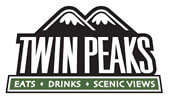Men’s Interview Dress Tips
Men’s interview dressing has been fairly static over the years. In fact, it’s pretty much the same whether you’re applying for an entry-level position or for something higher up. The difference is that the entry-level guy isn’t expected to have as many — or as expensive — high-quality clothes. For a second or third interview, the new grad would wear different shirts and ties but might understandably trot out the same suit; someone applying for a managerial role or something more senior could not do the same.
So what are the overall dos and don’ts for men’s interview fashion? Check out this guide to colors, fabrics and presentation.
Suit Style
At a higher level, you need a minimum of two suits, starting with a solid navy and a solid dark gray. Unlike a swaggering pinstripe, a serious solid won’t turn anyone off. You don’t want to seem too showy, come on too strong or dress better than your interviewer. Your background, experience and personality should speak for you, not your clothes.
Avoid a double-breasted suit; a single-breasted one is not only more current but always safe. Either a two- or three-button cut is fine, although a two-button style is a shade more classic. Fabric must be seasonally appropriate and properly pressed. Crisp and neat are key when deciding what to wear.
Wear the navy suit for a first interview and the deep gray for a second interview. An important note: Even though a black suit and a tan suit are two great additions to a man’s wardrobe, neither is interview-appropriate unless you’re seeking a job in TV or some other glamour industry. Should you get to a third interview, you might go with a subtle shadow-stripe suit or return to one of the earlier choices. This is often a second meeting with someone you met in only one of the first interviews, so wear the suit that person did not see.
A blazer or sports jacket is almost always too casual for an interview. Still, a blazer and dress slacks do have their place. If you’re seeking a position in academia, where professors may not even own a suit, or if your interview extends to an evening social invitation, you’ll want to show you are flexible enough to unwind and dress in a slightly different manner. But stay with what’s classic and traditional: navy blazer, gray dress pants, perhaps a blue or subtly striped shirt, and a quiet tie. The location may be different, but the approach is the same.
Shirts, Accessories and Grooming
For the first interview, a white shirt, not blue or ecru, in a business style is best. Wear a simple shirt collar, such as a traditional straight point or a slightly less dressy button-down, avoiding tab collars, pins or wide English spreads. Also avoid monograms or jaunty contrasting white-collar-and-cuffs. And no French cuffs, which will help you avoid any cufflink mistakes.
Above all, go with 100 percent cotton, no blends. The shirt should be as crisp and white as possible. It might even be worth investing in a new shirt. Provided you choose a light shade, you might pair a blue shirt with the gray suit for your second interview.
The tie is extremely important, since it is the first thing someone notices in a man’s outfit. An all-over, neat pattern, a small dot or a classic stripe all work well. Avoid anything wild, overly bright or statement-making. For example, a bow tie is out of the question — even if this is your style, save it for later. Forget pocket squares. And minimize jewelry. Certainly wear a watch, but not a sporty running watch or a Rolex.
To complete a professional image, black lace-up shoes are far better than casual penny loafers or anything gimmicky with buckles or straps. Never underestimate the importance of a good shoeshine. And black socks only, ones that are long enough to cover your ankles if you cross your legs but not bulky.
Clean nails; trimmed and freshly combed hair; well-knotted tie (ideally with a dimple); pressed pants; and an ironed, neatly tucked-in shirt are as important as choosing the right clothes. Looking polished says positive things about your business judgment. Have a real pen handy as well as a clean handkerchief in your pocket.
A man can often adjust his wardrobe to express his personal style and individuality, but this almost never applies to job interviews. Here it is crucial to concentrate on your goal of getting the job. You are not trying to impress anyone with your distinctiveness or flair. That can come later — after you get the job.
Don’t Hesitate to Ask
Finally, it never hurts — and can help a great deal — to ask during your preliminary phone discussion, “By the way, what should I be wearing?” or “What is your dress code?” If the answer is business casual, which is not likely, take that advice with a grain of salt. You never know if your face-to-face interviewer will have another meeting that day that requires him to be more formally dressed. If that happens and you’re dressed more casually, you are immediately at a disadvantage. Better to dress up than down is a good rule.








